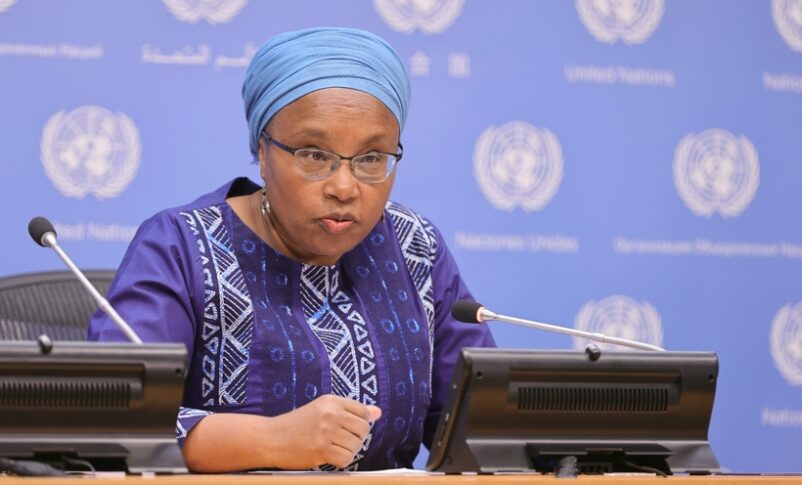UN official urges international community to protect civilians in Sudan
June 5, 2024 (NEW YORK) – A United Nations official has called on international community, including the UN Security Council, the African Union (AU), and the Intergovernmental Authority on Development (IGAD) and the League of Arab States to take all possible actions required to urgently protect civilians in Sudan.
Alice Wairimu Nderitu, the UN Under-Secretary-General and Special Adviser on the Prevention of Genocide said such actions should involve creating a conducive environment for a peaceful and durable resolution of the conflict.
“While only warring parties can stop the fighting, the international community also remains responsible to take action to protect the Sudanese people from existing and increasing risk factors of genocide and related crimes”, said Nderitu.
The UN earlier expressed deep concerns about the wellbeing of civilians caught up in the recent heavy fighting in Sudan’s North Darfur state capital, Al Fasher.
Nderitu, in a statement, said the hostilities must cease immediately and permanently, in El Fasher, and in the overall territory of Sudan.
“Opportunities for coordinated dialogue need to be expedited and in a concerted manner, recognizing the diverse voices of the Sudanese people therein, from civil society, women, and young people to traditional and religious leaders”, she explained.
The UN official stressed the need for dialogue of parties involved in the conflict.
During a meeting with the UN Secretary-General’s Personal Envoy for Sudan, Ramtane Lamamra on June 3, the Special Adviser strongly reiterated her alarm over the intensification of violence in El Fasher.
She particularly expressed serious concerns over the reports of ethnically motivated attacks against the non-Arab communities in and near El Fasher, including by the paramilitary Rapid Support Forces (RSF) and their allied militias.
“Violence invites more violence. There are also reports of retaliatory attacks targeted against Arab civilians in the region. If the violence does not stop now, the numerous international, regional, and community-level efforts to durably restore the already fragile social fabric in the region will risk yet another major setback. We cannot and must not let this happen,” she noted.
While briefing to the UN Security Council on 21 May, Nderitu said she raised alarm over the risks of large-scale violence in El Fasher, where civilians were already being disproportionately affected by indiscriminate attacks.
“Only a few days later, the warring parties are reportedly continuing to commit deliberate attacks, among others, against critical civilian infrastructures including medical facilities and internally displaced persons (IDP) camps, where many innocent civilians were already seeking refuge from the unbearable loss and suffering inflicted upon them and their loved ones,” she stressed.
The Special Adviser to the Secretary General further warned that the warring parties continue to progress with their military campaigns, blatantly disregarding the multiple calls to stop this horrendous violence and to protect civilians, as well as to facilitate safe, rapid, and unimpeded humanitarian access.
For instance, she said between 1 April and 31 May, nearly 130,000 people are estimated to have been displaced due to the fighting in El Fasher amid concerns over the lack of access to humanitarian aid, water, food as well as healthcare,
“Famine is looming in many parts of the city. Safe haven for civilians is effectively being reduced. This is deeply disturbing. It is unquestionable that risk factors and indicators for genocide and related crimes are present, and the risks are increasing”, said Nderitu.
She appealed to the warring parties to immediately, explicitly and with no space for ambiguity, call for the protection of all civilian populations and respect their obligations under international human rights and humanitarian law, as well as of the Jeddah Declaration of Commitment to Protect the Civilians.
“They committed to do this. They must uphold their word and commitment without any further delay,” she noted, recalling previous statements on the conflict.
More than 8.8 million people, according to the UN, have fled their homes since mid-April 2023, with access to food considered the priority need of the internally displaced persons, followed by healthcare, water as well as sanitation services
(ST)

